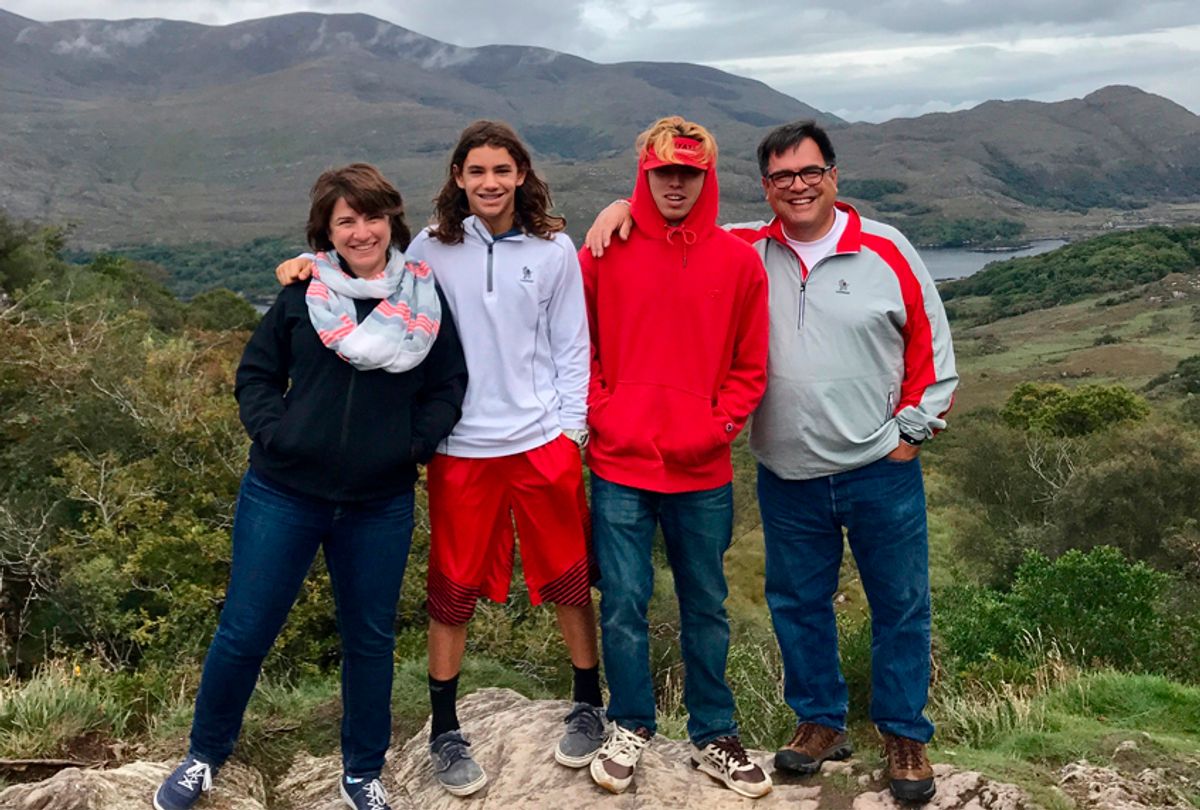Some years stick out for being a little different than the usual. For me, it was 2001: the year I broke my back and became a mom.
I was standing on my sister’s snow-covered balcony in Montreal, when suddenly the support beams gave way. I fell two stories. While the doctors asked my pregnant sister to stay away from the hospital, her boss did not. Because of good public policy in Quebec that allows workers to take time off, attending to a family emergency did not mean she lost her income while she stayed by my bedside. My husband, however, struggled between feeling a need to care for me and concern about keeping his job in Boston.
Flash forward to summer: My sister gave birth. My husband and I became parents to a one-day-old boy through the incredible journey of adoption. My sister received 50 weeks of job-protected, paid parental leave. We received none. My husband used his vacation time during the first few days of our son’s life and then had to return to work. We maxed out credit cards during my unpaid leave, while interviewing child care providers we could barely afford. My sister planned her return to work for when she felt she and her daughter were ready. I panicked, wondering how I would go back to work when my income barely covered child care costs, yet the months of my unpaid leave had left us little option.
At first, I thought it was a problem of our own making: surely we should have planned better. But the reality is that the American work world continues to operate as if all employees were men with full-time wives at home. Good public policy, like the ones guaranteed to my sister in Canada, could fix that.
So I started organizing.
I approached organizations that support adoption in Rhode Island, and then started building a coalition for better leave laws. Those early years led to some changes -- a state tax credit for adoptive families and changes to some employers’ family leave policies -- but neither created systemic public policy that would allow workers to take the time they need to care for a loved one or themselves, when they need to most.
In 2011, I joined with a group of other women who were learning how to be policy advocates. Together, we pushed for paid family leave in our state. In 2012, I ran for office so I could learn first-hand how to stop politics from getting in the way of good public policy. I made job-protected, paid family leave my No. 1 priority, and in 2013 Rhode Island became the third state to pass such a bill, helping our families and reinvigorating the national conversation.
My story isn’t unique, but in the year 2018, with so many women — including so many mothers — running for office, poised to make change and bring the struggles women face front and center in politics, it’s important that women share these stories with each other.
As more American women have entered the labor force, we’ve slowly seen each generation of women gain more opportunity. Yet U.S. employment practices continue to perpetuate traditional beliefs about women’s roles, which holds back our earnings and stifles public policy that supports equal caregiving. In fact, for more than a decade, Canada has outpaced the United States in the percentage of women in the labor force.
By running for office, I began to change the stronghold of a culture that views caregiving as only women’s work. In 2018, we are likely to see more women entering a different type of labor force in this country: elected office. The majority of all elected officeholders in the U.S. are white men. When women run, they change the political conversations happening in their state. When women are elected, they become part of legislatures that have been male-controlled since the founding of this country. Challenging the male-dominated structure of legislatures will be difficult, but if I’ve learned anything in working in partnership with other women to advocate for change, it is this: Women who stand for racial and gender equity working together make things happen.
As we celebrate Mother’s Day, let’s also celebrate the change mothers and all women are poised to make this year and a future that will change our laws so that all people, regardless of gender or family makeup, will be fully present when their families need them most.
To women considering politics: "Do it"
Why does the United States have such a shockingly low number of women in elected office?

Shares